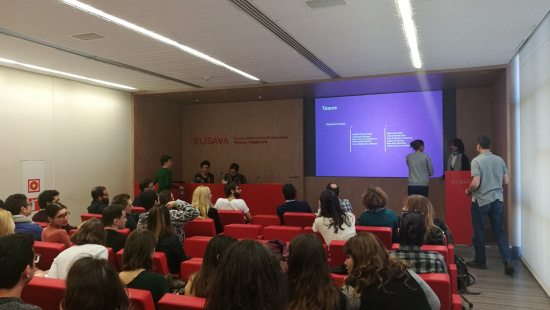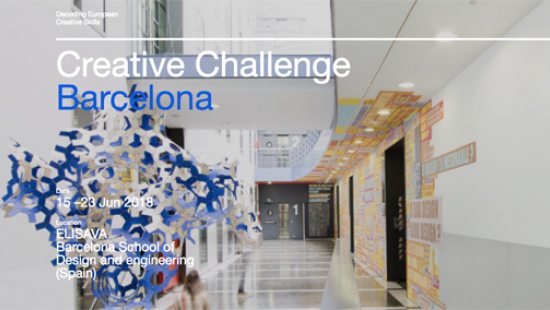Elisava students take on the challenge of promoting iconic and intercultural commerce
When
16/01/2018
The Department of Commerce at Barcelona City Council has put forward Elisava University School of Design and Engineering a proposal for students to promote intergenerational and intercultural commerce within the framework of the European project Decoding European Creative Skills being carried out in Barcelona this week. This is a creative challenge, addressed at students and based around Barcelona commerce.
Elisava is leading the project, with participation from the Eindhoven University of Technology and the Salzburg University of Applied Sciences. The Department of Commerce and the Elisava University School opted to take part in the experience via a collaboration agreement.
Over a five-day period, students from Elisava will be working in groups to analyse the two proposals made by the Department of Commerce. Both proposals are aimed at preserving and promoting iconic and intercultural commerce in Barcelona. Working in teams, the students will discuss their conclusions and put forward a proposal.
Preserving the uniqueness of iconic shops and promoting intercultural commerce
The Department of Commerce has posed the students with two challenges: the first one seeks to preserve the uniqueness of the city’s iconic establishments through the youngsters’ talent and creativity. Shops of this type have been passed down from one generation to another, conserving the original character and addressing the need to modernise and keep abreast of changing consumer habits. These establishments mean Barcelona is able to enjoy unique shops which give life to local commerce and help provide the balance between citizens and public space.
The second challenge: asks students to think about and come up with a proposal which helps improve the perception of quality relating to intercultural commerce via cooperation with local commerce selling local produce. Like other cities, Barcelona is now home to people of very diverse origins, with different customs, activities and needs, and commerce has become an integrating factor. Yet many shops don’t use the resources offered by the local area and so equal conditions and opportunities need to be established for all retail sectors to be able to access those resources.
The students will be presenting their conclusions and specific proposals to the Department of Commerce at the beginning of next week.



